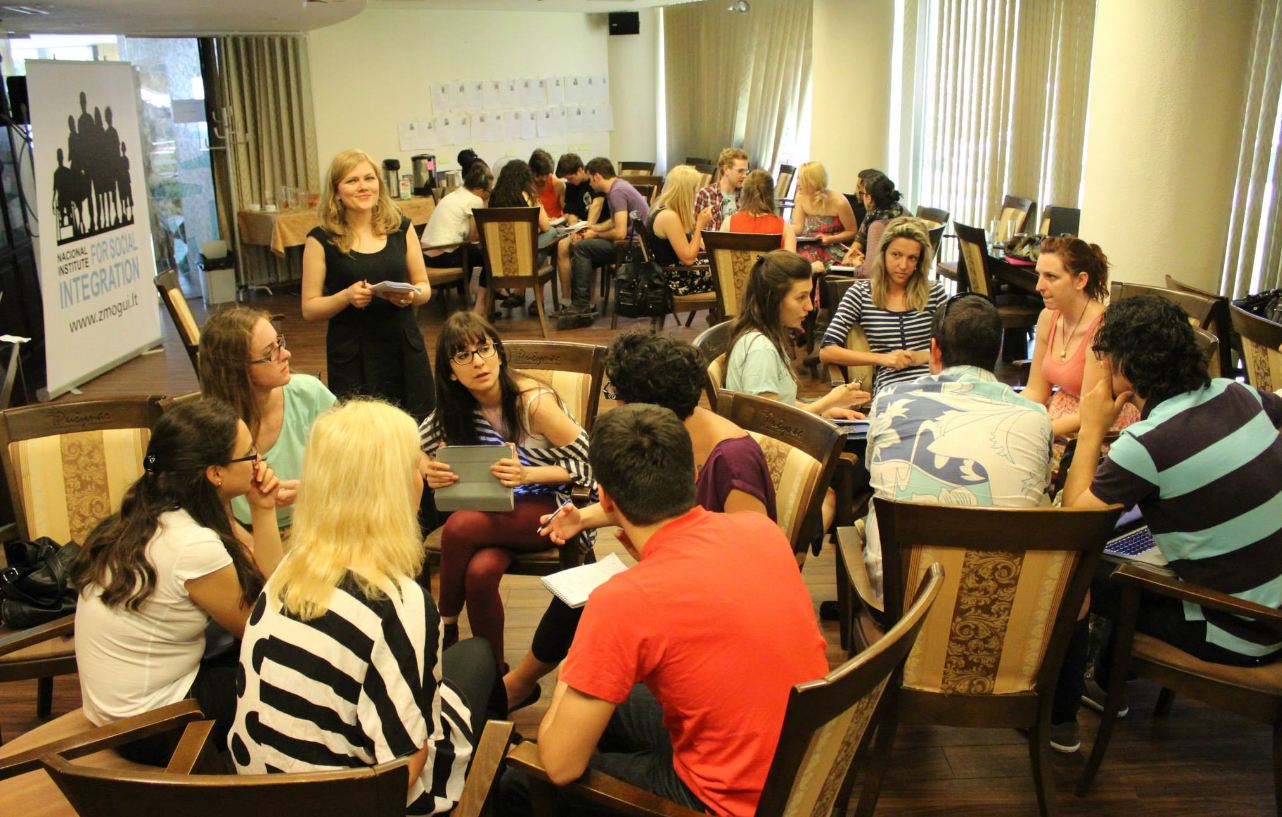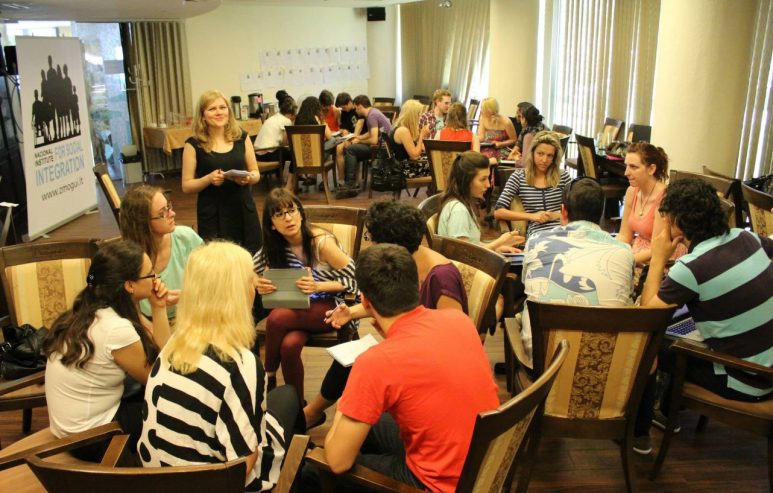Dates: 16 – 22 May 2013
Country: Lithuania, Druskininkai


One of the goals of the workshop held in Lithuania was to define terms ‘hate speech’ and ‘freedom of expression’ and to make a distinction between them.
The main objectives were to recognise hate speech and stereotypes, especially the stereotyping of the vulnerable groups, and to learn how to react against them. The way to do that, as Neringa Jurciukonyte from the National Institute for Social Integration explained, is through the direct contact with the people from the vulnerable groups. “Put yourselves in their shoes and talk to people directly”, said Jurciukonyte.
The participants who were coming from Lithuania, Latvia, Italy, Spain, Bulgaria, Serbia, Croatia and the UK received lectures in order to understand what ‘hate speech’ means from a sociological perspective. In the training on diversity and hate speech, the young journalists and journalism students have been lectured how the European Human Rights Court determine whether something is to be define as ‘freedom of expression’ or ‘hate speech’.
The training in Lithuania had its practical side as well.

Viktoras affirmed that “disability is not in your legs or back, it is your head”, and highlighted that he sometimes feels invisible because the media does not give a voice to the vulnerable groups. “ There are stories about us without including our say”, says Viktoras.
The idea of giving voice to people who are not normally heard was an important point raised during the training.
“We have a privilege position as a journalist. Press freedom is a responsibility, exercised by journalist on behalf of the public. Part of it is to make sure that everyone gets a chance to be heard. And when you hear of people who are marginalized and cut out from society, they are the very people that we should go and talk to”, affirmed Mike Jempson, trainer of the course and director of Media Wise.
The training in Lithuania was part of a project “Address of Human Rights- Journalism” . The Media Diversity Institute is the partner of the project.

For example, Agnes Berga, graduated journalist from Latvia, will write about the situation of Roma people in Bulgaria, in particular on health care and education.
Ivan Zhikov, journalist from Bulgaria, will address homophobia in sports and how can be fought by breaking stereotypes.
One of the ideas that participants expressed after the training was that they have realised that “people themselves can tell you a lot more than experts”, says Ivana Jelača, MA Diversity and the Media student.
Pierre Smith Khanna, Editor in Chief of the Lamp and Owl magazine from Birkbeck University, shared the same idea. “You can take a simple story and say a lot”, like the personal story of two immigrants in America which they listened during one of the days of the training.
After few days of training on diversity and hate speech young journalists came up with the following Code:
1. Demonstrate your humanity
2. Use arguments based on facts not feelings
3. To be accurate got to those directly affected
4. (Use logic to) Scrutinise what you read and write
5. Inform, don’t speculate
6. Respect everyone (by being polite)
7. Understand what power you have as a journalist
8. Challenge, don’t use or create stereotypes
9. Be independent; tell truth without fear
10. Never fall in love with what you write; find new angles
11. Double check for double meanings, avoid the risk of misinterpretation.
12. Arouse empathy in your readers/audience
13. Speak clearly – in short sentences
14. Stay critical
15. Listen to your conscience
16. Journalism is a responsibility
17. Report on issues/problems that (really) matter
18. Never quit…
19. Hold leaders to account
20. Dig deeper, to get things right
21. Reflect multiple viewpoints
22. Don’t trust (community) leaders to reflect all views (of the community)
23. Don’t be afraid to piss people off
24. Use freedom of speech responsibly

